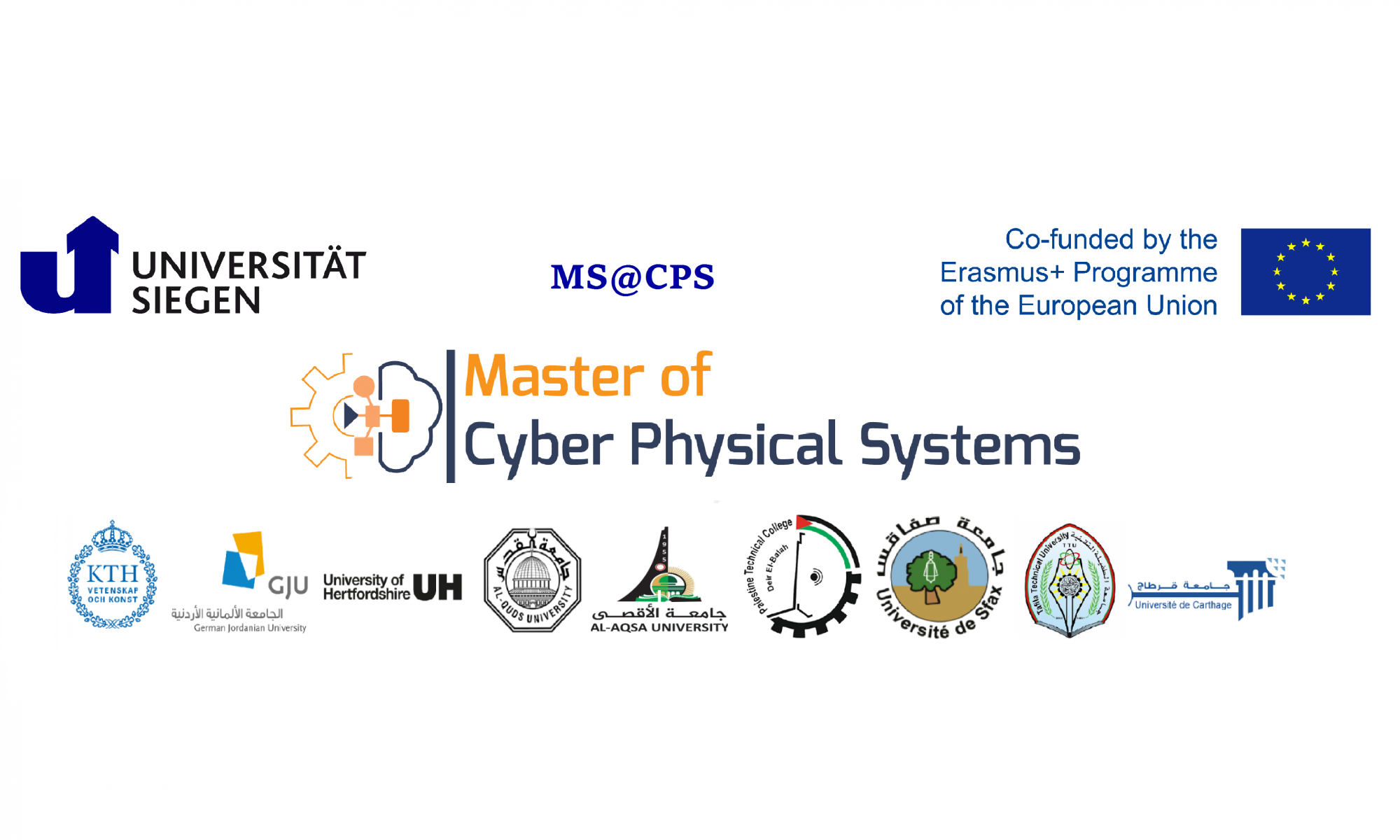Description
The successful implementation of the project will be firmly based on dissemination and exploitation activities. As such, the dissemination and exploitation of the activities conducted in the MS@CPS project are integral to its goals.
(1) Dissemination
The dissemination activities will ensure that establishment of collaborative links with the academic community through the organization of workshops, summer schools and contact with other projects that have similar nature.
The project activities will be delivered to target groups according to the following scheme:
– Spread the project results along with the gained experience within the project consortium and outside the project consortium to potential university and industrial stockholders.
– Organize informative sessions, such as open house days at partner universities to acquaint future potential students and academic staff with the project.
– Continuous contact with local industry by all partners in the corresponding partner countries. The dissemination plans will include:
– Public website and social networks: USI will host a comprehensive public website and social networks that contain all relevant information about the
project.
– Production of brochures and posters related to the project concept and objectives.
– Define the project logo and brand image.
– Newsletter and Press Releases: USI will design and distribute the newsletters and press materials as well as advising other partners in content creation.
– Public information sessions.
– Advertisements in various media vehicles.
– Diverse disciplinary experts
– Participation in various related conferences and workshops.
– Spreading success stories of the program graduates.
– Building on links with the Industry and Governmental Enterprises and
Departments.
– Knowledge transfer within partners’ organizations, academia, industry, students and users communities and professional networks.
– Events and workshops to support the project studies as well as for
dissemination purposes.
– Users/learners’ manuals and teaching material preparation
– Alumni creation and development of strong professional ties
(2) Exploitation
A trivial exploitation of the outcomes of all the work packages is implementing the MS@CPS at partner universities. This involves obtaining the approval of the relevant higher education authorities for each university and then running the first round of the master’s program locally with joint teaching across universities using e-learning technologies. The Master’s program, following the EU standards, will be 2 years and consist of 120 ECTS. It will consist of three taught semesters and one semester for the thesis. Furthermore, e-learning sessions will be organized between the EU and partner countries.
Quality control and advisory visits by EU partners and external experts will take place to each partner university to ensure the smooth implementation of the program and provide feedback and selected focused topics. EU professors will give seminars on embedded systems teaching and learn technologies and
methodologies or consult students, etc. to other partner professors. The Master thesis will be completely conducted in collaboration with the industry. Therefore students will have access to a broader range of expertise.
3) Sustainability
In order to make a difference for large stakeholders’ communities and citizens at large, there will be two MS@CPS events organized. The first event will be held in the middle of the project and the second one at the end of the project. The targeted audience for these events is the key actors (graduate students, academic planners, etc.) where MS@CPS would be of potential use and larger industrial players who would be interested in the system. We expect that the large number of interactive open events – such as summer schools, workshops and open-door events – and the strong integration of industry partners will achieve a sustainable multiplier effect.
Tasks
1. Dissemination and Communication
2. Exploitation planning
3. Accreditation of the program
4. Deployment of the MS@CPS at consortium universities
5. Project events
6. Sustainability plan

